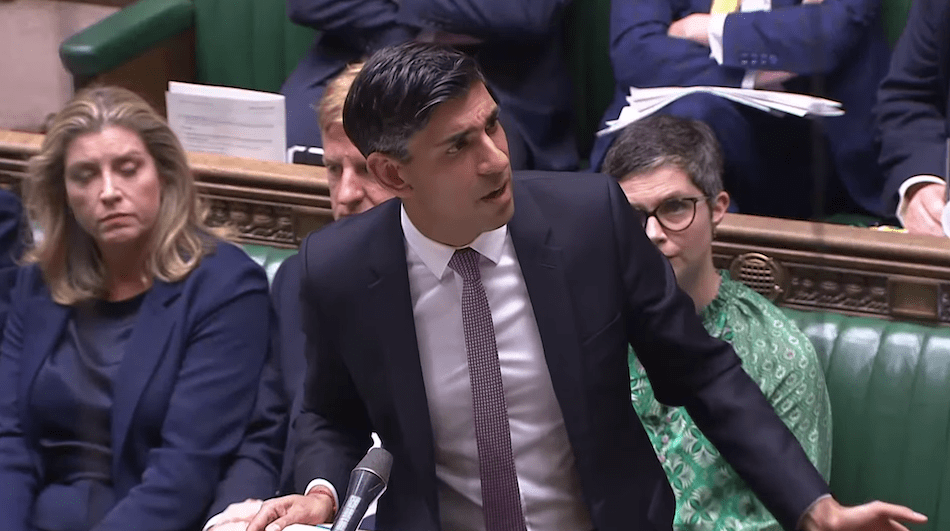Keir Starmer had a dilemma at Prime Minister’s Questions. Focus on the Boris Johnson psychodrama, or the more tangible story about mortgages and interests rates? He went for Tory infighting first.
But then Sunak took the curious approach of deciding to use Starmer’s opener as an opportunity to address the Johnson question head on, rather than trying to argue that his sole focus was on the economy and the cost of living. He told the chamber that ‘I followed the process to the letter’ and that he had stuck by the convention of all prime ministers in sending Johnson’s peerages unamended, rather than blocking it as Starmer said he should have done. Starmer has spent this week arguing that Tory disruption and ‘tantrums’ are deterring investors from the UK. Sunak sounded distracted: he answered the Boris Johnson half-question and not the line in it about people across the country worrying about costs and mortgages.
The session quickly became a political knockabout where the two men argued over whose party had the greater tendency to be shameless about Lords appointments. Sunak reminded Starmer that his predecessors had signed off on peerages for Tom Watson (who spread ‘vicious conspiracy theories that were totally and utterly untrue’) and Shami Chakrabarti. As a knight, Sunak said, Sir Keir should know that. The ‘Sir’ reference underlines something the Tories keep picking up in focus groups: that voters think Starmer’s ‘Sir’ comes from inherited wealth and privilege.
The pair then bickered over who was the least trustworthy on the economy: Sunak talked about ‘chaos with Ed Miliband’ and Starmer told the chamber that ‘there’s only one party that broke the economy and they’re sitting right there!’ He added that ‘they never take responsibility for the damage they’ve done’, before demanding that Sunak block Liz Truss’s honours list to prove he’s not weak.
Voters think Starmer’s ‘Sir’ comes from inherited wealth and privilege
The two leaders returned to well-worn paths. Starmer said if Sunak ‘spent as much time focused on the economy’, the NHS, asylum system and other public services, ‘the country would be in a far better place’, before calling for a general election now. Presumably given an imminent general election does not look particularly likely, Labour is hoping to develop a ‘squatter’ narrative about a government that, like Gordon Brown in 2010 as the coalition negotiations went along, is still occupying power. Sunak seized on one thing Starmer had mentioned – asylum – and used it as an attack on Labour opposing the Illegal Migration Bill.
Stephen Flynn’s questions for the SNP were, once again, sharper than the ones from Starmer. He asked about mortgage rates, but inevitably Sunak was able to counter this with a joke about the SNP sending Nicola Sturgeon flowers after her arrest.
It was notable that backbenchers – even troublesome ones – were quite keen to back Sunak up today, almost as thought they too are fed up of having to talk about Boris Johnson. Philip Davies described the Uxbridge by-election as ‘one of the socialist landmines’ that the PM had inherited from Johnson, adding ‘if only he had had a majority of 80 and been prime minister he might have been able to do something about it’. Then Theresa Villiers asked a question that allowed Sunak to attack the ultra-low emission zone, which is going to form a key part of the Tory attack on Labour in the Uxbridge by-election. The Tory party machine is trying to move on from Johnson, but Starmer won’t need to work particularly hard to make it return: the ex-PM will do that job.







Comments